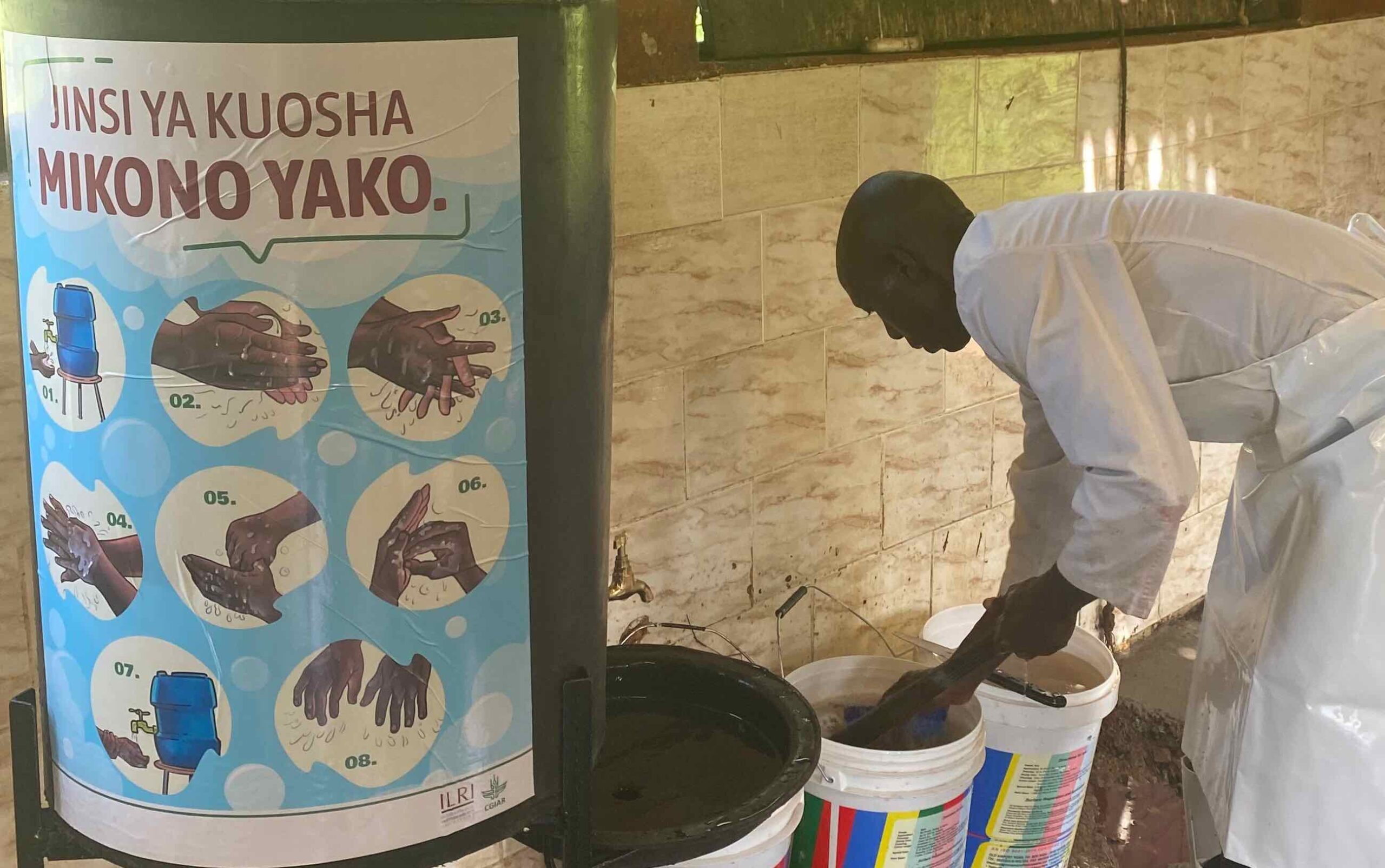A common assumption among policymakers and food system stakeholders is that markets and governments operate at best in parallel and at worst at cross purposes. But in the case of food safety, public and private enterprise interests align: No one wants a reputation for making their customers sick, or for meat that spoils quickly. So measures to promote food safety benefit everyone.
As we observe World Food Safety Day 2024 (June 7), IFPRI research shows several key ways that interventions targeted at vendors, butchers, and other small businesses can make a clear difference in food safety and public health.
Unfortunately, tracing a possible food-borne illness back to a particular meal or vendor can be hard for consumers—maybe you get sick after eating something off, but it’s also possible you caught that bug from your child, whose daycare is a merry-go-round of gastrointestinal distress. Over the longer term, meanwhile, contaminated food can be just one of many cumulative factors affecting health. It’s typically impossible, for example, to trace whether a case of cancer is due to a lifetime of exposure to contaminated food, air or water pollution, or something else entirely.
This means that while food businesses do have some incentive to ensure that the products they sell are safe and healthy, those incentives are often weakened by the difficulty of tracing a health complaint back to a particular contaminated food, let alone the stage of processing or production at which the problem originated. Interventions that focus on overcoming this information problem—by aggregating and transmitting information about food safety to consumers—can be highly effective ways to promote public health.
In Kenya, IFPRI worked with the Ministry of Health and experts at the University of Nairobi to collect representative data on levels of a cancer-causing fungal toxin in different types of maize flour in 10 cities over the course of a year. Information on the relative contamination level of different maize products was then provided to mothers of young children in low-income areas of Nairobi. Two months later, the proportion of these mothers with the safer type of maize flour in their homes increased from 25% to 33%.
Independent information on the food safety practices or outcomes of businesses—from roadside snack vendors to butchers—can similarly be used to empower consumers. With researchers at the University of Georgia and University for Development Studies in northern Ghana, IFPRI tested the impact of a voluntary food safety rating program for roadside vendors of a peanut-based snack food. Vendors in northern Ghana were trained to source safer raw materials, and then their finished product was tested for a fungal contaminant. Vendors were then given signs they could use to advertise the relative safety of their products. Preliminary results show that vendors who had the opportunity to participate in this program used better sourcing practices and produced less contaminated food.
Similar food safety training and rating interventions, in collaboration with the International Livestock Research Institute through the CGIAR One Health Initiative, are now in progress with butchers in Viet Nam and Ethiopia.
Another joint study with researchers at the International Livestock Research Institute (ILRI), also under the One Health Initiative, tests the impact of capacity building and worker incentives on slaughterhouse hygiene practices and outcomes. Slaughterhouse managers and workers in Kenya were provided with training and equipment to implement hygiene recommendations, including a handwashing station, cleaning supplies, gumboots, and waterproof aprons. Meat inspectors, who visit slaughterhouses daily, were paid to complete a weekly checklist based on workers’ observed hygiene practices. In a subset of intervention slaughterhouses, workers could earn a weekly hygiene performance bonus based on the inspector’s report.
Preliminary results from this trial show better hygiene performance in slaughterhouses where the intervention was implemented, relative to a control group. Workers were more likely to follow hygiene recommendations, and both knives and washing water were less contaminated with bacteria. There also appear to be economic benefits for slaughterhouse owners: More animals were processed per day in treatment group facilities. But in this case, business success appears to erode public health impact, as busier slaughter facilities tend to produce more contaminated meat, and the contamination of meat coming out of slaughterhouses where the interventions were tested was no safer than that from control facilities.
Market forces can clearly play complex roles in the impact of public health interventions. This body of work shows that understanding how consumers and businesses react to government efforts to improve food safety is key for designing effective policy and ground-level interventions that contribute to food safety and public health.
Vivian Hoffmann is a Senior Research Fellow with IFPRI’s Markets, Trade, and Institutions Unit and an Associate Professor in the School of Public Policy and Administration and Department of Economics, Carleton University, Canada. Cited research has not yet been peer-reviewed.
Referenced IFPRI research:
Barasa, Allan; Hoffmann, Vivian; Murphy, Mike; Ndisio, Boaz; and Okoth, Sheila A. 2023. Aflatoxin contamination of maize flour in Kenya: Results from multi-city, multi-round surveillance. IFPRI Discussion Paper 2217. Washington, DC: International Food Policy Research Institute (IFPRI). https://doi.org/10.2499/p15738coll2.137033
Hoffmann, Vivian; Kariuki, Sarah; Murphy, Mike; Ndisio, Boaz; Ochenje, Ibrahim; and Okoth, Sheila. 2023. Impact of information on demand for safe food. Project Note March 2023. Washington, DC: International Food Policy Research Institute (IFPRI). https://doi.org/10.2499/p15738coll2.136638







